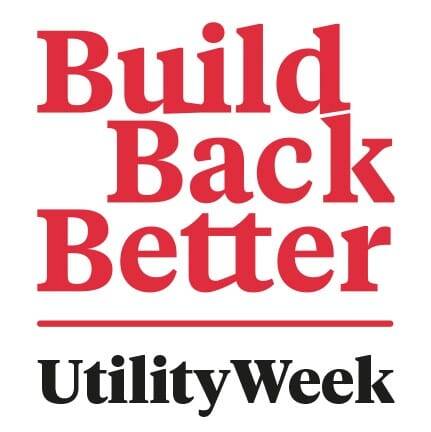You’ve reached your limit!
To continue enjoying Utility Week Innovate, brought to you in association with Utility Week Live or gain unlimited Utility Week site access choose the option that applies to you below:
Register to access Utility Week Innovate
- Get the latest insight on frontline business challenges
- Receive specialist sector newsletters to keep you informed
- Access our Utility Week Innovate content for free
- Join us in bringing collaborative innovation to life at Utility Week Live

The interim CEO of Energy UK also calls for an nationwide roll out of energy efficiency measures in the second in our series looking at where the impact of green investment could be felt speedily.
Where do you think the quick wins can come from in creating green jobs to boost the economy?
 The obvious place to start is with a national energy efficiency programme. We all know about the benefits this will bring in terms of reducing emissions and cutting bills for customers. But domestic, labour intensive activities like this can provide work for thousands and right across the country – especially given the scale of what needs to be done. Similar opportunities could come from installing smart meters and developing low carbon heating alternatives. Sadly, there are going to be a lot of job losses in other sectors and here’s chance to create long term employment opportunities in growing markets.
The obvious place to start is with a national energy efficiency programme. We all know about the benefits this will bring in terms of reducing emissions and cutting bills for customers. But domestic, labour intensive activities like this can provide work for thousands and right across the country – especially given the scale of what needs to be done. Similar opportunities could come from installing smart meters and developing low carbon heating alternatives. Sadly, there are going to be a lot of job losses in other sectors and here’s chance to create long term employment opportunities in growing markets.
What are the scale of jobs we’re talking about here?
The energy sector already supports over 700,000 jobs (one in 46 jobs) in the UK. Delivering major infrastructure programmes to upgrade our housing, decarbonise transport, develop and install low carbon alternatives to gas boilers and create a modern, flexible energy system could create hundreds of thousands more jobs across the country – both directly and indirectly through the supply chain and local economies. A recent report by the EEIG estimated that 42,500 jobs could be created in energy efficiency alone over two years and in terms of green economy jobs in the widest sense, we’ve seen analysis suggesting that could amount to 700,000 – 800,000 over the next decade
Would they be created regionally – or evenly distributed?
 This is again where the nationwide scope of our industry comes in. It’s absolutely crucial that the benefits and opportunities are felt across the country – we know some regions are being harder than others by this crisis. By its very nature, a housing upgrade programme will create jobs in local areas across the country. You can already see different regions developing – or making plans for – their own low specialised carbon economies and supply chains. And with the energy system becoming more and more diverse and localised, the employment should be more evenly distributed
This is again where the nationwide scope of our industry comes in. It’s absolutely crucial that the benefits and opportunities are felt across the country – we know some regions are being harder than others by this crisis. By its very nature, a housing upgrade programme will create jobs in local areas across the country. You can already see different regions developing – or making plans for – their own low specialised carbon economies and supply chains. And with the energy system becoming more and more diverse and localised, the employment should be more evenly distributed
What would need to happen to make this possible?
All of the above and more. You need the right policy framework, you need the right investment and the right incentives. As we’ve said above, training and re-skilling programmes are essential – and the economic disruption is likely to make a lot of skilled workers redundant. Of course, you’re going to need the Government to help fund some elements but equally important is providing the right signals and environment to encourage investment. Our industry invests £13bn a year already and as we emerge out of this crisis, investors are going to be looking for long term opportunities which the utility sector has always traditionally provided. We’ve developed a report, in partnership with PWC, which highlights the central role the energy sector can play in powering the post-Covid- 19 economic recovery and identifies five policy areas which could provide the stimulus for jobs, investment and growth
What might be the complications?
Delay. We’ve been calling for action with more and more urgency for a while now. Of course, the pandemic has delayed things unavoidably but even before that we’ve had the White Paper, the National Infrastructure Plan and a lot else delayed by a succession of events. To take the example of heating, we need to start seriously exploring and trialling the possibilities. We can’t be waiting for the answer before acting sometimes, we need to go and find out what it is – and accept that there will be the odd failure along with the successes. And of course, countries across Europe and the world are already outlining their own green recovery programmes so we can’t risk trailing too far behind.




Please login or Register to leave a comment.